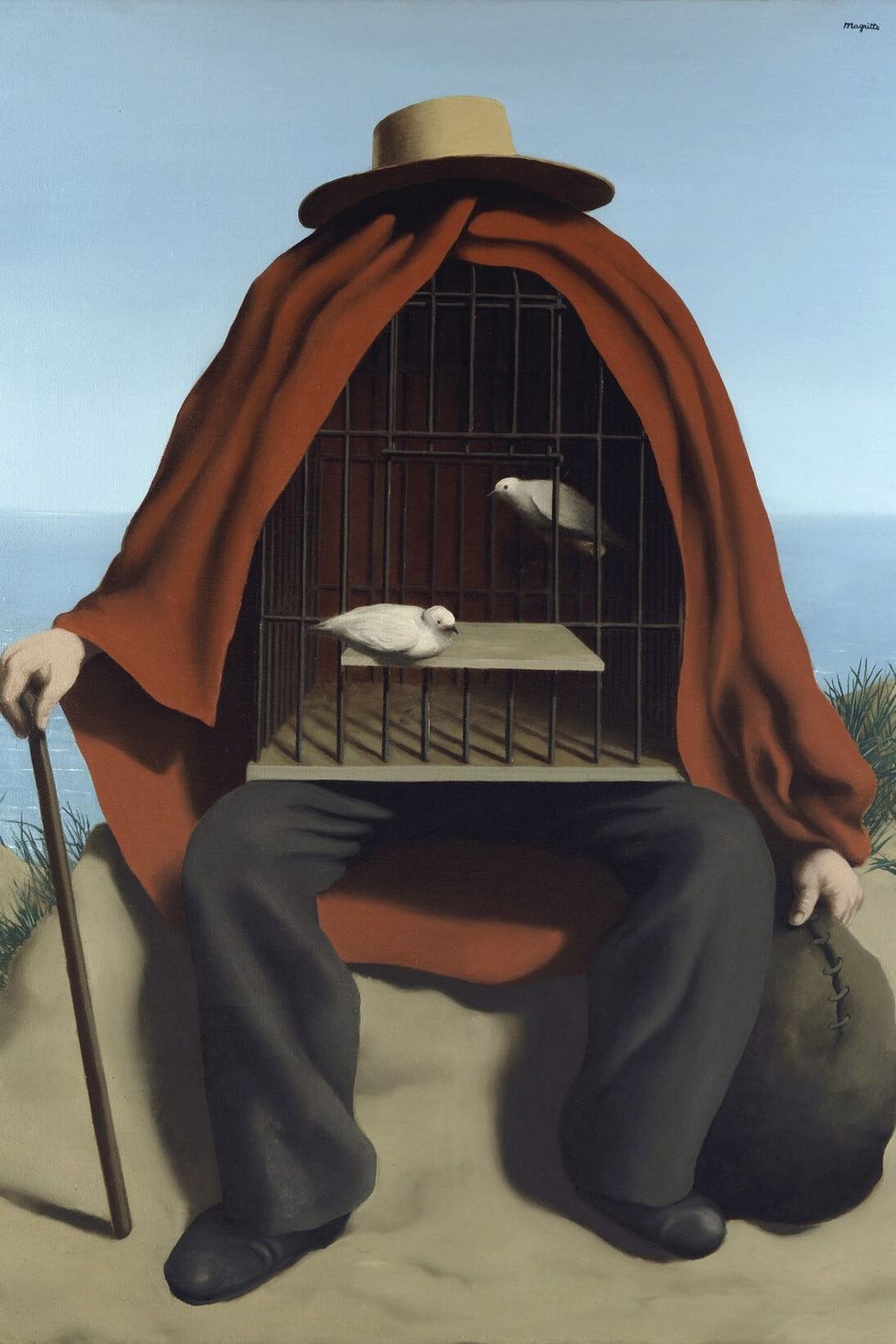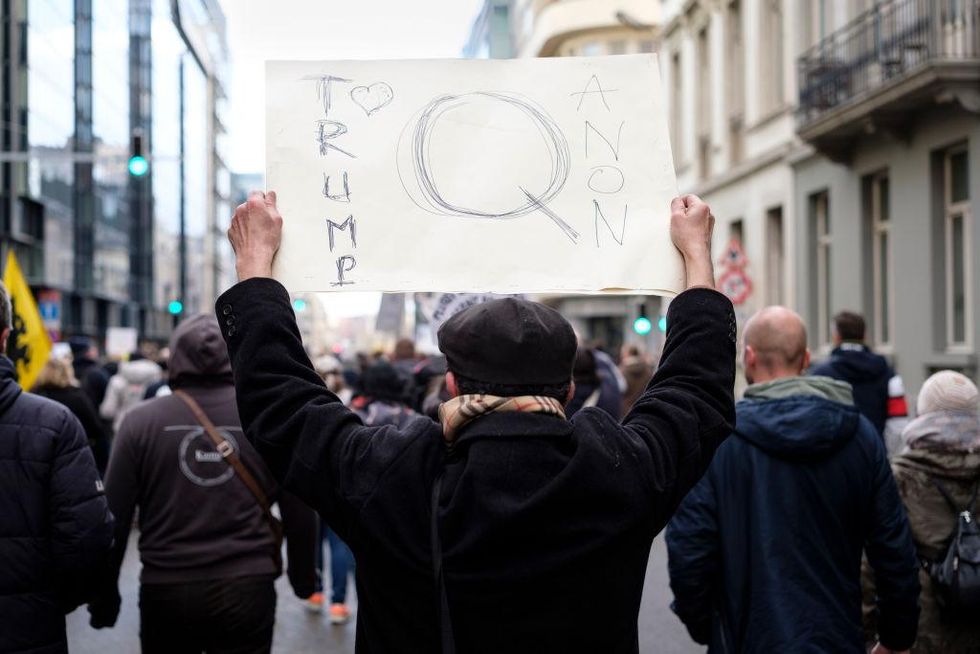Capitalism And The Lexicon Of Loneliness: Your Wounds Demand You Speak Your Truth
Do not pretend to be anything other than yourself attempting to gain the approval of heartless authority and petty tyrants of the everyday kind.
"I need to be alone. I need to ponder my shame and my despair in seclusion; I need the sunshine and the paving stones of the streets without companions, without conversation, face to face with myself, with only the music of my heart for company."—Henry Miller, Tropic of Cancer
Deep down, we struggle to come upon accurate words to describe the terrible beauty of our aloneness. In this plight, we are together. In this musing, I, listening to the music of my heart, will attempt to hobble through and send back dispatches conveying a lexicon of aloneness.
A lesson I hope to learn by scribing a travelog of the dark: I've noticed, people who have survived the howling abyss of abandonment, and have been freed from its grip of grief, have been transfigured by the ordeal. Rarely, as a consequence, do such individuals act as errand boys, muscle, or apologists of oppressors.
They have snatched this from the mouth of despair, it would be tragic to be false to the forces that formed them. Thus make a vow to self: Do not pretend to be anything other than yourself attempting to gain the approval of heartless authority and petty tyrants of the everyday kind. Your wounds demand you speak your truth.

Even in our cultural atomization, we are connected to those cast out; we are bonded to society's denizens of the dark, to those who feel the pain of the suffering Earth; to those who the misnomer known as normalcy casts from conscious awareness; to those who capitalist functionality (i.e., crackpot realism) brutalizes, kicks to the curb, and condemns to madness and death… yet life on life's terms, confronts us with innumerable, seemingly infinite connections. Within, we mirror all things. We, unbeknownst to ourselves, communicate with all things. Not only the realm of the human but soil, ocean, storm, star, galaxy, electron…
We, moment to moment, travel the bridge between each other's heartbeats. We are connected both with what we love and what we shun. Moreover, what we cast out and shun will return as affliction. Hence, the Earth herself is unwell and she rages in floods and firestorms.
Breathe in deep, clear your throat, and make exhortations on behalf of the voiceless. If you have a gift for music, compose and play them a song, let the weary take refuge in the rest between musical notes. Display sacred vehemence toward life-defying oppressors who contrive to make the life of the many a prison by incarceration of the heart.

When the culture of a nation, intoxicated on extraverted mania inherent to Mephistophelian capitalism, disallows the visions of its denizens of despair into the conversation, compensatory angels borne from the unconscious (what people in times past knew as the soul) will descend bringing on a cultural darkness. In the sterile, clinical language of our time, the phenomenon is termed a pandemic of depression.
Emissaries, invisible in daylight glare, appear in the dreams of the scorned and forsaken; the visitors whisper verse to those capable of stillness, and guide the willing into moments of inadvertent reprieve. In short, deliverance occurs by means of easing the burden of self—which is a gentle way of saying, aiding one in getting the living hell over oneself. These emissaries impart the message the visible world can be a mirage. Hope is an invisible force allied with luminous angels whose light would blind us upon sight. Hence, we are moved to transformation by a force not perceptible during quotidian day.
Paradoxically, because all things arrive freighted with their opposite (enantiodromia) bearers of hope are, often, those aforementioned lonely, despair-wracked individuals driven to stand at the edge of the abyss—the abjectly lonely who have been moved, by desperation, to implore the unseen for mercy.
No person wants to arrive at such a place. One would choose, and most do, a mundane life wherein we follow the signposts, on an exclusive basis, of the visible world—yet is, in essence, given our human proclivity for habitual self-reference, a graceless tour of a house of mirrors. Oh—the hellish mix of confusion and blandness of the choice.
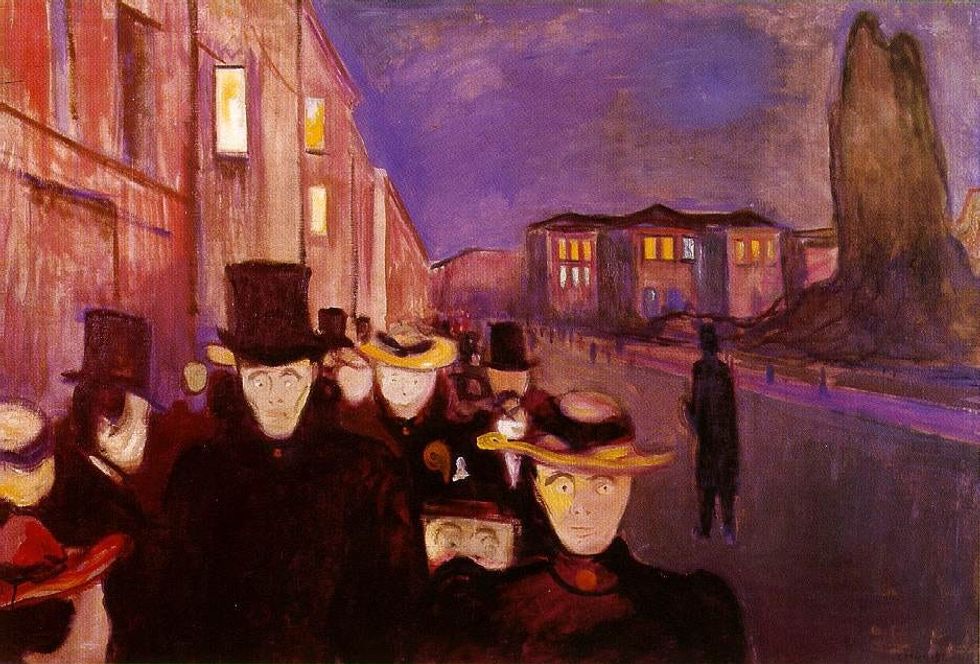
Prayer before sleep: Lord of nightmares bestow grace on me by allowing me to be reborn from within the womb of night. Despair's blackness grants the intrepid traveller the ability to navigate darkness, thereby avoiding a life defined by the limbo of complacency.
A person open to being ministered to, thus transformed, by a numinous voice, calling from the darkness at the edge of the daylight world, will, in all likelihood, spend their days alone, all too often suffering the pain of wounds inflicted by rejection. Loneliness will be a constant companion.
But as Rilke avers in verse:
You, darkness, that I come from
I love you more than all the fires
that fence in the world,
for the fire makes a circle of light for everyone
and then no one outside learns of you.
But the darkness pulls in everything—
shapes and fires, animals and myself,
how easily it gathers them!—
powers and people—
and it is possible a great presence is moving near me.
I have faith in nights.—Rainer Maria Rilke, "You Darkness"
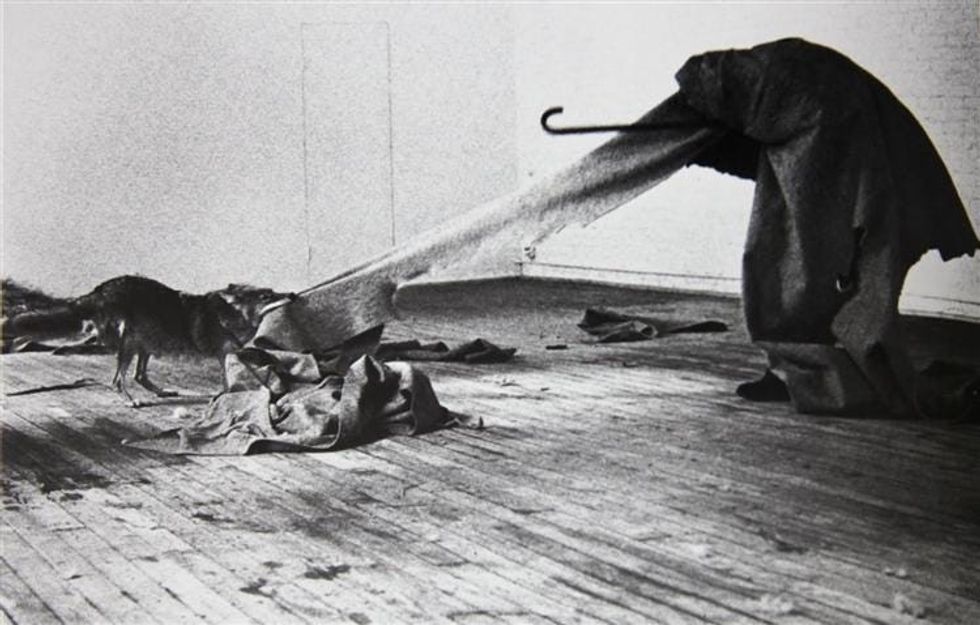
Often, a shunned soul, one who travelled through the world of mindless consensus' inferno of fuckwit and has returned, will be put on the defensive by normalcy's bullies and challenged to make an accounting of himself—i.e., to account for the unaccountable. In the end, one who has seen and survived one's own darkness, will be able to apprehend the darkness within his inquisitors. At the speed of a synapse, his tormentors will go from bullying to claiming victimization.
For, when backed against the wall, he is often moved to speak in a soul-plangent lexicon that causes a collapse, even for an instant, of his tormentor's protective yet ad hoc walls of coping—thus revealing the fragile banality that governs their lives. In so doing, he has committed an act, in nice society, that will never be forgiven.
Rilke surveys the scene and sends back this dispatch in verse:
Exposed on the cliffs of the heart. Look, how tiny down there,
look: the last village of words and, higher,
(but how tiny) still one last
farmhouse of feeling. Can you see it?
Exposed on the cliffs of the heart. Stoneground
under your hands. Even here, though,
something can bloom; on a silent cliff-edge
an unknowing plant blooms, singing, into the air.
But the one who knows? Ah, he began to know
and is quiet now, exposed on the cliffs of the heart.
While, with their full awareness,
many sure-footed mountain animals pass
or linger. And the great sheltered birds flies, slowly
circling, around the peak's pure denial.—But
without a shelter, here on the cliffs of the heart.—Rilke, "Exposed On The Mountains Of My Heart"
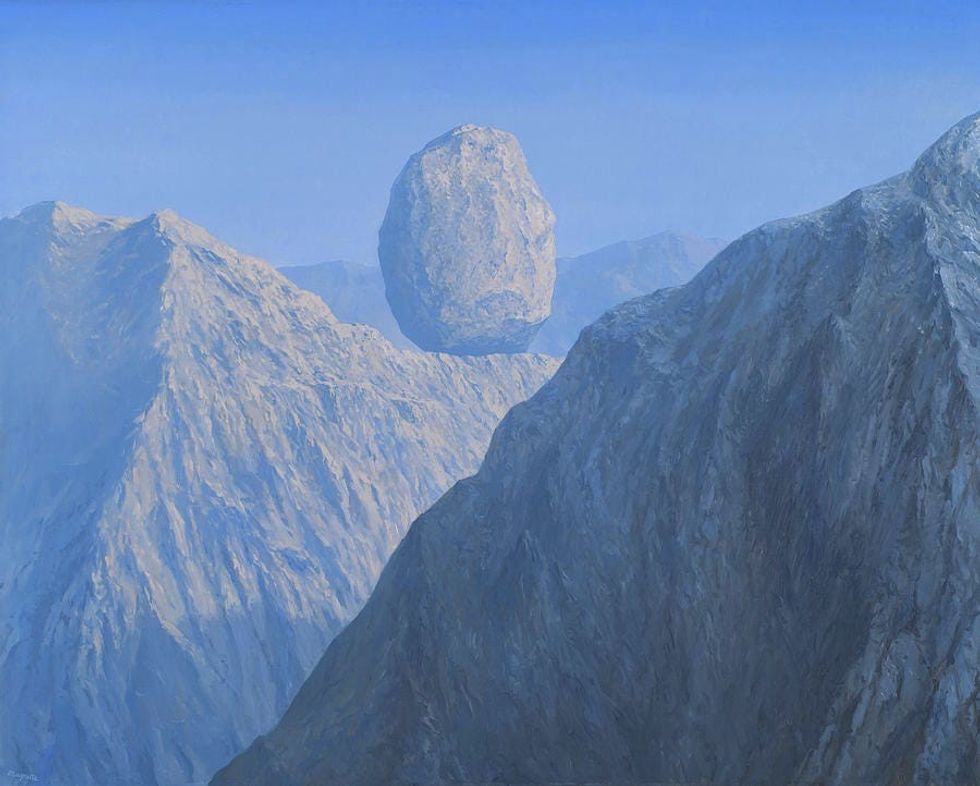
Stop for a moment and take it all in. This life… on our Earth. The beauty. The terror. Notice: The terror involved in taking in the beauty of it all. The act will awaken your heart. Ask yourself: Am I on my heart's path? Or does this road lead me, again and again, into the dominion of exploiters? If you received an affirmative in regard to the latter question, I suggest, after you cease weeping—a sane response to you taking notice of the heart-devoid landscape where you have strayed—ask yourself: How can I reorient myself as to the direction of my heart's path?
Do you feel thwarted by circumstance, by the inherent miseries in facing capitalist hierarchies of immovable power and the system's architecture of exploitation? Rebel by engagement with the eternity delivery system of the imagination. Doing so does not translate into idle fantasy. By a receptivity to originality, by being moved to enthusiasm by acts of creativity… will provide the libido to trundle through the living landscape of imagination; thereby, one does not need to be an artist to live and engage the world in an artful manner.
Become a one person hallelujah chorus for originality. Within you, glide wheels of fire. The valley of bones rises as an army of flesh. This is your exodus out of bondage.
